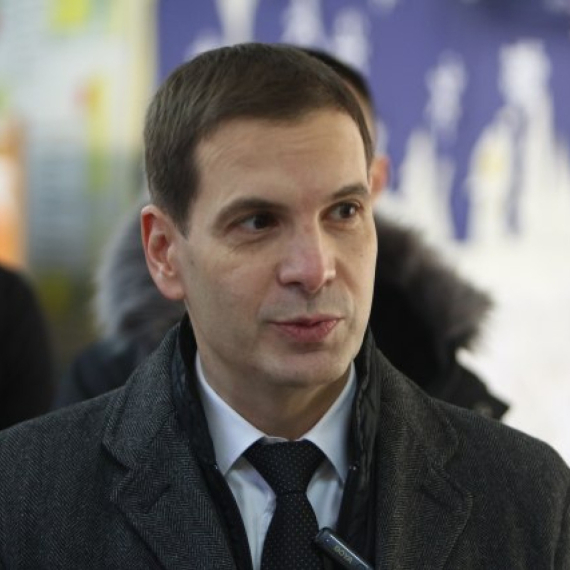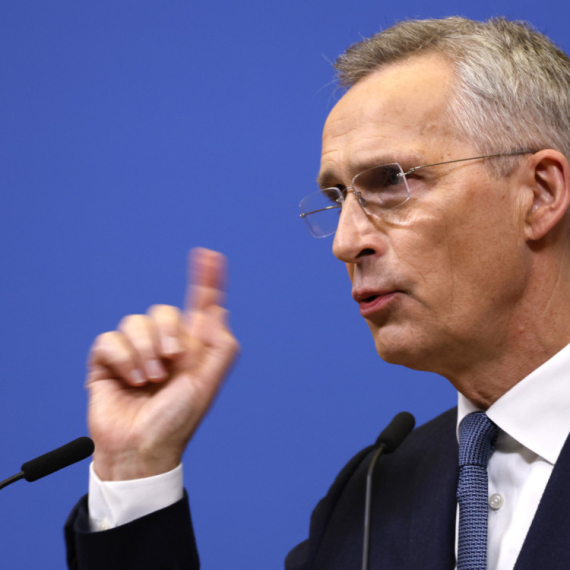Reconciliation not possible without status solution
A full reconciliation between Belgrade and Pristina is not possible without a solution for the status of Kosovo, says Ernst Reichel.
Thursday, 02.10.2014.
12:17

Reconciliation not possible without status solution
At a panel held as part of the Belgrade Security Forum, titled Serbs and Albanians in 2025 as friends and allies: How do we get there?, representatives of Belgrade and Pristina mostly spoke about the need to normalise relations, which they said is a pre-requisite for a better life for both Serbs and ethnic Albanians.Reichel said that Serbia's EU accession talks will be concluded once the country meets all the conditions, including normalisation of relations with Pristina.
The process of normalising the Belgrade-Pristina ties runs parallel with Serbia's EU accession process, and that is what Berlin wants to maintain, Reichel said.
The Head of the EU Office in Kosovo said that there is no agreement in the EU on the status of Kosovo, but that the implementation of the Brussels Agreement is a condition in Serbia's accession process as part of negotiation chapter 35, as well as for Kosovo's progress as part of the provisions of the Stabilisation and Association Agreement.
It might be exaggeration to expect Serbs and Albanians to become friends and allies, but the objective of the Belgrade-Pristina dialogue is to normalise relations, he said.
The goal of the Belgrade-Pristina dialogue is, most of all, normality - to achieve normal relations between Belgrade and Pristina, a normal possibility of EU accession for Kosovo, and a normal situation in Kosovo itself, he said.
Zbogar said that the normalisation process is a marathon that has three stages - reaching the Brussels Agreement was the first and implementation will be the second, with a consolidation of the dialogue as the third stage, which will include ties between civil societies, media, engagement of legislators and businesspeople.
That is the only way to achieve a long-term normalisation of relations, Zbogar said.
Belgrade officials were more optimistic about future relations between Serbs and ethnic Albanians, while participants from Pristina showed reservation.
The Head of the Serbian government Office for Kosovo-Metohija, Marko Djuric, said that Serbs and Kosovo Albanians could be allies and friends in 2025, but added that this will depend on the moves politicians in Belgrade and Pristina make in the coming years.
Politically, everything was finished with the signing of the Brussels Agreement, but the goals should be set higher, Djuric said.
’’Belgrade and Pristina will reach no agreement on the status, but must focus on solving everyday problems and on the positive historical examples shared’’, he said.
Serbian Parliament Deputy Speaker Gordana Comic said that "what we have seen in the past is one and the same paradigm - the Serbian and Albanian interpretations of history".
This must change and life in 2025 should be discussed, she said, adding that the people's expectations depend on what is being offered.
Besa Sahini, a senior analyst with the Initiative for the European Stability, said that two countries cannot be allies if one sees the other as its part, while Agron Bajrami, Editor-in-chief of the Pristina Koha Ditore daily, said that friendships and alliances do not exist between those who are unequal.
Sincere discussions are needed about where we are - the agreement was reached in an unequal situation, he said.
Serbia was awarded the candidate status and opened the talks, while Kosovo is in a difficult situation - it is an agreement between two unequal sides, Sahini said.





















































Komentari 9
Pogledaj komentare